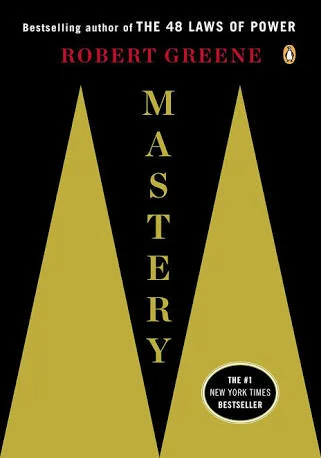
BLOG
Should you become a Trusted Advisor?
Happy customers are easier to manage. The best ones know what you are both good and bad at.
Getting to this kind of relationship requires the honesty and commitment of a “Trusted Advisor”.
Now do you really want to become a trusted advisor?
Sometimes a trusted advisor will need to decline a sale opportunity that they have an “okay” solution and instead recommend a competitor who is the market leader.
When should you do this?
It really depends on the competitiveness of your industry. When long term relationships and slow growth is the norm you should consider the trusted advisor approach.
Conversely you will get eaten alive if you try this in a highly competitive, transaction-based industry!
7 Most Common Mistakes when building your first sales team
Here is a summary of one of SaaSTR’s most popular articles: 7 Of The Most Common Mistakes Made Building Your First Sales Team
Hiring a sales person that you would not personally buy from.
Hiring your first VP of Sales that has not worked for a small SaaS startups. Avoid ones that have worked for unicorns (Salesforce, Oracle etc) that are used to having lots of backup/support.
Hiring a stretch VP of Sales who has not hired at least 2 quota earning sales reps.
Hiring too many staff from the competition. They have some advantages, but you will probably overlook their weaknesses.
Giving reps too much time to scale.
Not training reps. Its your fault if they don’t have everything they need to sell!
Crazy, complicated accelerators and sales comp plans. Not keeping it simple.
The illusion of choice
Once you have enough sales experience in your startup, you will develop a knack on how to craft the best solution for your customers.
But if you only give them one choice, the sales process may stall.
Far wiser to give your customers three choices.
Your preferred solution will be in between a more expensive option and a cheaper option.
The expensive option gives the customer features they may desire but is unrealistic. Expensive options also “anchors” your middle (preffered) option as more affordable.
The cheapest price option gives an “ok” solution at a great price but does not entirely meet their needs. It can also save the deal if one of the customer stakeholders influences the decision based on what is cheapest.
When the customer sees both a higher and lower option they will feel good about taking the middle ground.
Two additional options gives them something to compare their best choice with.
It also reduces their need to go to your competitor.
And finally giving someone more choices makes them more freedom. We all like that feeling of freedom, even if it’s just an illusion...
What I am reading right now
I am currently reading one of HBR’s “Must Reads” on Emotional Intelligence.
HBR is great at condensing decades of academic research into digestible articles that can be understood by the common man or woman.
This my first research into Emotional Intelligence.
I thought I understood the topic. However it is much bigger than I previously thought.
Emotional Intelligence is critical for any startup founder to achieve success. Sales success is critical on having Emotional Intelligence.
Here are some of the gems I have uncovered so far:
- Long term business success is dependant on an organisational culture of emotional intelligence.
- Emotional intelligence is carried through an organisation like electricity.
- The primary task of a leader is emotional leadership.
- The leader needs to manage his or her inner life...this is not very easy!
- What you need to know about CEO disease.
- Emotional Intelligence is not about putting on a game face every day.
- Why moods are not discussed in the workplace.
I challenge you to read more about this topic. Especially if you think you know all about it!
Old friends
It always pays to maintain your relationships with old friends, bosses and colleagues.
As a founder you need their help.
They want to help you and your startup. Make an effort to catch up for coffee with them every now and then.
Over time some of these contacts will get promoted to executive management. They can be a great help to you as a future customer or introducer.
As an extra bonus it’s always good to have friends!
Know your limits
It is hard to drag yourself away from the computer when deals are happening!
Be aware that your cognitive abilities decline when you don’t take a break.
Sales people are often criticised for not paying attention to detail.
When fatigue causes errors occur at the quoting and contracting stages they are usually expensive to fix!
A friend of mine who managed a telco division was new to the job and was putting in many late nights.
One of his BDMs requested he sign off on a quote that (in hindsight) required more oversight. Unfortunately that single error cost the telco division $1M. My friend recovered from that mistake but not without a lot of worry and stress.
Don’t fall into the same trap!
Being in the customer’s eye
Early in my career it got on my manager’s nerves that I spent too much time in the office. He expected me to be out all the time, meeting with customers etc.
Now I had good, regular meetings but he wanted me to double or triple that.
I disagreed. I felt I was being more than productive with the level of weekly meetings and the office time was spent on proposals and calling customers.
In hindsight my manager was right and I was wrong.
Getting seen by your customer, even in passing helps you to stay top of mind. You don’t want to be booking meetings with with no real agendas, but you can use your time to connect with other stakeholders in the organisation.
In the words of Robert Cialdini’s book, Pre-Suasion, what becomes focal becomes causal.
Or put simply... the more your customers see you the more they are likely to buy from you.
The balance between Realism and Positive Creativity
As a start up founder you need both Realism (getting to the cold truth of your sales prospects) and Positive Creativity (imagining a bright future for your product).
Both perspectives are important. Realism keeps you grounded and forces you to compensate for deals that will fall through. Positive Creativity leverages your most powerful tool, your imagination to build a great vision of the future!
Too much realism you get depressed. Nobody buys from someone who is negative.
Too much Positive Creativity and you are just dreaming!
Although these perspectives are contradictory, if you harness their power it will help you build a successful sales engine for your startup.
Having Darth Vader as your Sales Manager
This YouTube video shows Darth Vader displaying his management style in getting the second Death Star “back on track”:
Even as a child I felt the impressiveness of this scene. Vader’s “framing” of the situation quickly overcame the frame of his subordinate.
Sometimes it helps to have a Darth Vader type keep you more accountable:
- what is the pipeline looking like?
- are those opportunities real?
- what are you doing to close the sales now?
Find someone that can help you “dispense with the pleasantries” and get back to business!
It only needs to be a brief conversation once a week. The effect can be powerful!
No matter your background, you can master sales!
We all tend to look at extremely successful individuals as “gifted” with “natural-born talent”.
Until I read Robert Greene’s book, Mastery I thought the same way also.
I used to think that Einstein or Mozart were especially gifted. The following film excerpt of Mozart re-enforces these perceptions.
Viewing others as naturals is just a cognitive bias on our part. It is in the master’s interest to give the impression their talent is natural and takes no effort on their part. This keeps their would-be threats at bay.
The same goes for sales. No matter your background if you are prepared to work hard, learn and develop your EQ, you should also have a very good chance of sales success!
If you don’t believe me, then read Robert Greene’s book, Mastery.











